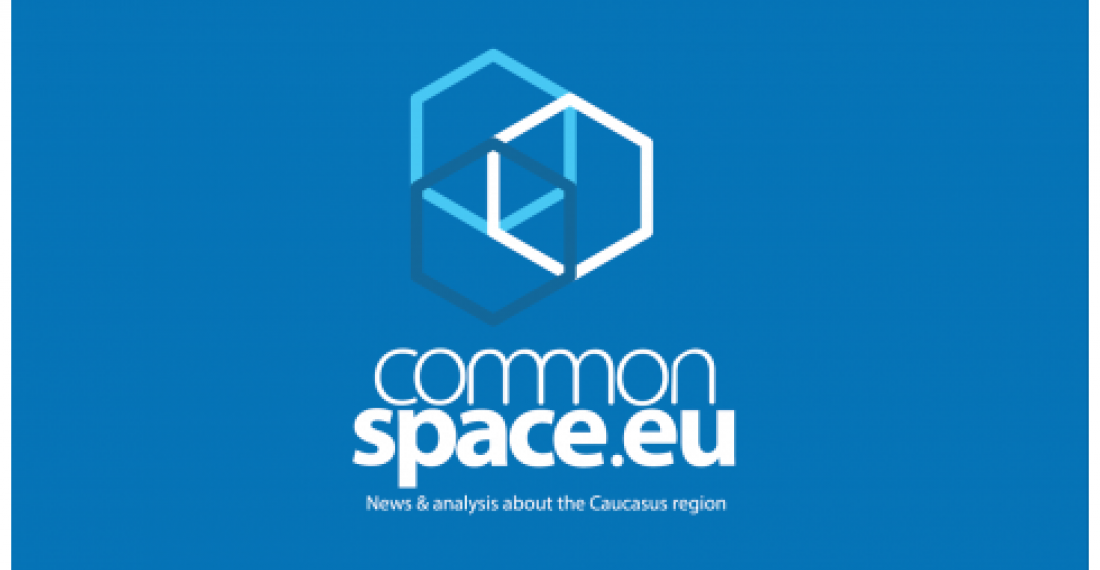Веб-сайт сommonspace.eu, который специализируется на новостях и анализе происходящих событий и развитий в Кавказском регионе, отмечает свое 5-летие с запуском нового дизайна.
Commonspace.eu является инициативой НПО LINKS (Диалог, анализ и исследование) базирующегося в Лондоне, в рамках совместного сотрудничества с НПО и СМИ в регионе. Это один из проектов в рамках Европейского Партнерства за мирное урегулирование конфликта вокруг Нагорного Карабаха (ЕПНК), программы гражданского общества по миростроительству, финансируемые Европейским Союзом.
Представитель LINKS (DAR) говорит, что "в последние пять лет commonspace.eu регулярно публиковал новости, критический анализ и комментарий касательно Кавказского региона, заняв нишу как среди местной аудитории, так и среди зарубежной, которая заинтересована происходящим в региоге. Новый дизайн сайта добавляет новые возможности, которые позволяют редакционной команде быстрее и лучше реагировать на события в регионе. Наш сайт продолжит уделять особое внимание конфликту в Нагорном Карабахе, а также поддержке его мирного урегулирования, но мы по-прежнему будем рассматривать его с более широкой региональной точки зрения, учитывая такие вопросы как внутренние развития в Армении, Азербайджане и Грузии, региональное сотрудничество и безопасность, отношения между регионом и Европейским Союзом, и роли России и Турции. В дальнейшем мы рассчитываем усилить нашу редакционную команду с целью повышения качества нашей активности в facebook и twitter, а также расширить сферу интереса и начать освещать события, происходящие на Северном Кавказе".
LINKS
LINKS был основан в Лондоне в июле 1997 года как некоммерческая организация. Это небольшой независимый аналитический центр, который работает в сфере конфликтов и предотвращения конфликтов, гос. управления, глобальной безопасности и международных отношений. LINKS (Диалог, анализ и исследование) (www.links-dar.org) уже в течение почти двух десятилетий предоставляет пространство для диалога и аналитической дискуссии, проводя глубокие исследования по вопросам, связанным с кавказским регионом. С 2010 года LINKS был одним из пяти партнеров Европейского партнерства по мирному урегулированию конфликта вокруг Нагорного Карабаха (EPNK). В рамках третьего этапа программы EPNK, которая только началась, LINKS в тесном сотрудничестве работает с двумя ведущими аналитическими центрами, Центр европейской политики (www.epc.eu) в Брюсселе и Международный институт мира (www.ipinst.org) в Вене.
ЕПНК (www.epnk.org)
Европейское партнерство ради мирного урегулирования конфликта вокруг Нагорного Карабаха (ЕПНК) является уникальной инициативой, финансируемой Европейским Союзом, цель которой оказать положительное влияние на процесс урегулирования нагорно-карабахского конфликта. Состоящая из консорциума европейских НПО, совместно с местными партнерами на Южном Кавказе она осуществляет обширную деятельность, направленную на миростроительство, чтобы способствовать установлению прочного мира в регионе.
Для получения более подробной информации, пожалуйста, свяжитесь
editor@commonspace.eu или office@links-dar.org







